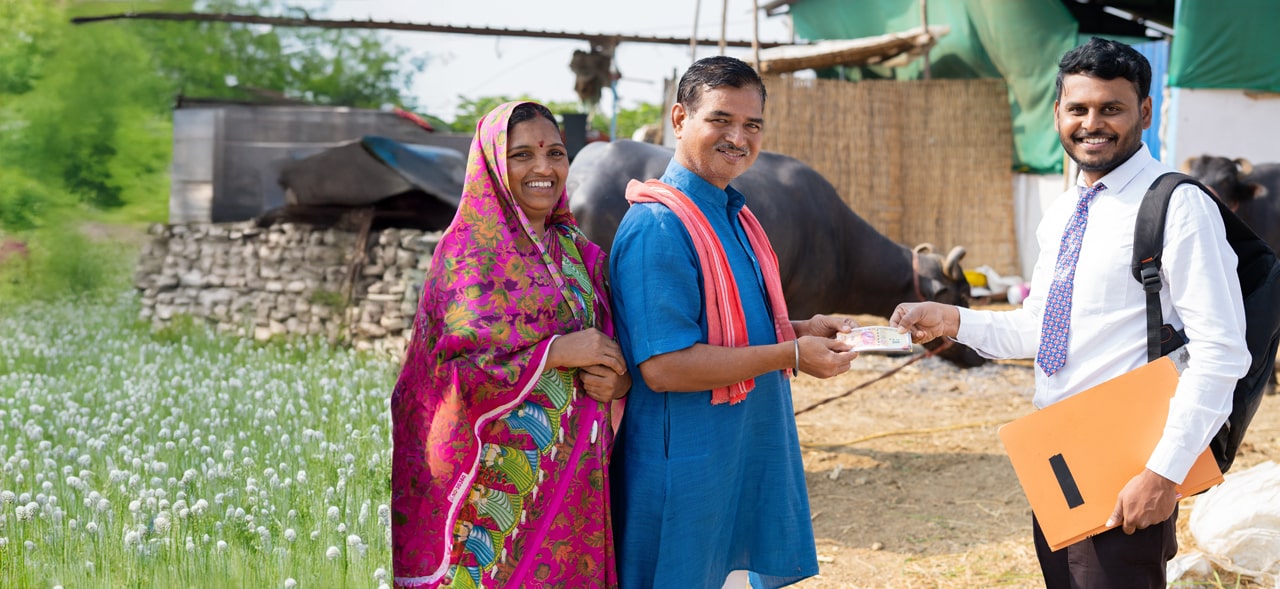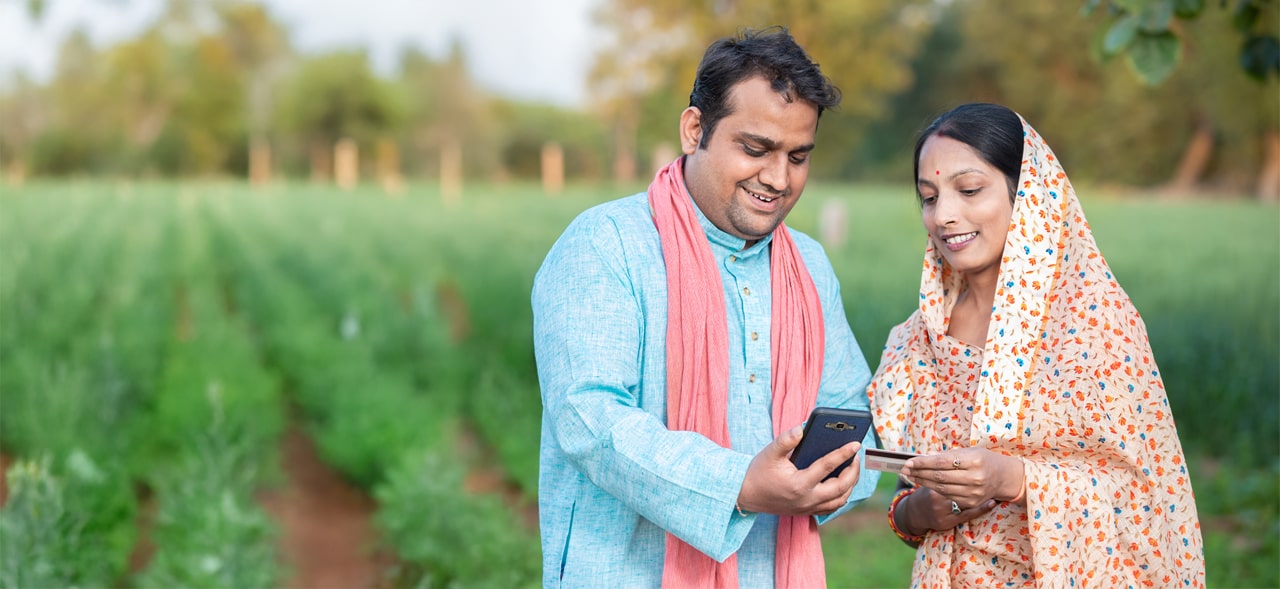
Public and private sector banks are key players in the delivery of digital financial services (DFS) at the last mile in India. However, persistent challenges, such as agent network viability, service quality, liquidity constraints, and limited digital adoption, undermine the effectiveness of these channels. MSC (MicroSave Consulting) collaborated with leading banks, such as the State Bank of India (SBI), the Indian Bank, the Bank of India (BOI), HDFC Bank, and Yes Bank, to diagnose and improve DFS delivery through strategic agent network interventions.
- For SBI, BOI, and Indian Bank, MSC redesigned the agent lifecycle, from onboarding to grievance resolution, which led to stronger service reliability across 120,000+ agents.
- For Yes Bank, MSC scoped digital payment adoption in the dairy value chain in Odisha, which helps farmers transition to cash-lite systems.
- With HDFC Bank, MSC enhanced its rural initiative by refining products for agri and dairy customers and upgrading training and communication for agents.
Collectively, these interventions advanced scalable, inclusive banking across rural India.

MSC partnered with BRAC Bank, Bangladesh’s leading bank, to design and implement a scalable agency banking model. The model would allow BRAC Bank to expand financial access in underserved and remote areas. As a leading SME-focused bank, BRAC Bank sought to strengthen alternative channels and reach new customer segments through a robust agent network.
MSC supported the project from start to finish. We conducted readiness assessments, market and regulatory analyses, and customer or agent profiling to inform a comprehensive strategy that covered product design, commission structures, and digital channels. Then, we ran a pilot program to test and refine the model before its national rollout.
The project produced transformative results. BRAC Bank scaled its agent network by 12 times, achieved a 162 times increase in account openings, and saw transactions grow 81 times in volume and 148 times in value. By November 2021, its agent outlets had processed quarterly transactions worth USD 1.74 billion, which positioned BRAC Bank as a leader in Bangladesh’s agency banking sector.
BRAC Bank commissioned the project.

India’s low-income, migrant, and unbanked populations have historically struggled with limited access to safe, affordable, and convenient financial services. Traditional banking channels often excluded these groups due to documentation-related barriers, limited reach, and high transaction costs. Against this backdrop, business correspondents and mobile-enabled solutions emerged as a crucial bridge to bring millions of underserved people into the formal financial system.
Eko India Financial Services, a business correspondent for the State Bank of India and ICICI Bank, took a leading role to solve this exclusion problem. It extended mobile banking and remittance services to vulnerable populations. Over time, the company processed more than 3.1 million transactions worth USD 410 million for 1 million-plus unique customers. A network of 1,600 Eko agents processed these transactions initially across Delhi, Bihar, and Jharkhand, and later in Uttar Pradesh and Maharashtra. Eko partnered with MSC in an engagement spanning eight years to sustain this growth and improve the delivery of services.
MSC conducted multiple rounds of customer- and agent-focused research to guide product development and operational strategies. We evaluated the usability and impact of mobile banking products, tested and refined pricing structures, assessed customer service quality, analyzed competition, and reviewed the effectiveness of marketing campaigns. We also advised on product launch strategies and agent support systems to ensure accessibility, trust, and customer satisfaction.
The sustained collaboration generated evidence-based insights that simplified processes, improved customer experiences, and strengthened agent operations. These contributions supported Eko’s continued expansion into new markets and advanced financial inclusion for underserved communities.
The Bill & Melinda Gates Foundation commissioned the project.

The Reserve Bank of India intended to enhance the quality of Business Correspondents (BCs) and ensure customer protection within its agent banking system. It mandated that all BC agents pass the Indian Institute of Banking & Finance (IIBF) BC/BF certification exam before they could offer complex financial products. Yet, despite the mandate, pass rates remained persistently low, which limited the ability of agents to expand services, earn higher commissions, and effectively support financial inclusion efforts across rural and underserved areas.
The Centre for Development of Telematics (CDOT) and the Jharkhand Rajya Gramin Bank (JRGB) commissioned MSC to design a solution that could address these challenges and improve agent certification outcomes. MSC adopted a design thinking approach to reframe the learning journey. As part of this approach, we simplified technical content into accessible training materials, structured counseling sessions to build confidence, and introduced practical exercises that reflected agents’ real-life contexts.
The pilot showed a significant impact. Out of 230 agents trained, 86% successfully cleared the certification exam, which translated to a 43% increase in pass rates. Agents gained formal accreditation and reported greater confidence in customer interactions and improved earning potential through commissions on a broader suite of financial products. The intervention built on this success and has now been scaling through e-modules, with the potential to reach more than 1.5 million agents nationwide.
The Bill & Melinda Gates Foundation commissioned the project.

Airtel Money sought to understand its consumer value proposition better and address challenges across its sales and distribution network. This effort was part of its plan to expand mobile financial services in India. Airtel’s operations spanned tier I, II, and III cities. Airtel recognized the need to refine its channel strategy to align more closely with consumer needs and strengthen the effectiveness of its retail agents.
MSC was engaged to conduct a comprehensive market analysis and research across Delhi, Mumbai, Allahabad, Jaunpur, Patna, and Gaya. The study assessed Airtel Money’s commission and payout structures, examined sales operations and marketing practices, and identified critical gaps in retailer training, communication, and operational support. Through direct engagement with consumers, retailers, and distributors, MSC generated actionable insights into the challenges and opportunities in Airtel’s distribution channels.
The findings helped Airtel Money refine its product positioning and remedy distribution inefficiencies. MSC provided clear recommendations to optimize retailer effectiveness and align product design with channel strategy. Our work supported Airtel in its mission to build a more reliable, customer-centric, and scalable mobile money service.
The Bill & Melinda Gates Foundation commissioned the project.

The UN Capital Development Fund’s (UNCDF) Mobile Money for the Poor (MM4P) program in Zambia set out to prove how a carefully designed blend of technical, financial, and policy support could help scale sustainable branchless and mobile financial services for underserved communities. The initiative sought to extend digital finance to low-income and rural populations, increase the use of branchless channels, and create an enabling environment for providers and regulators alike.
MSC was engaged to provide digital financial services expertise to support the program’s country-level initiatives. The team conducted payment flow diagnostics, including a comprehensive study on government payments through the Better Than Cash Alliance methodology. This work identified critical challenges to digitization and developed a clear roadmap of recommendations for policymakers and stakeholders. MSC also supported service providers with market and client research, product and service design, and project monitoring to ensure international best practices were adapted to Zambia’s specific needs.
Through this engagement, MSC’s contributions helped shape four provider projects under MM4P designed to promote a healthier digital finance ecosystem. The program strengthened the digitization of government payments, expanded the reach of mobile money, and enhanced the adoption of digital financial services among low-income and rural households. These efforts laid the groundwork for greater financial inclusion in Zambia by ensuring the sustainable growth of digital financial services.
The UN Capital Development Fund (UNCDF) commissioned the project.





